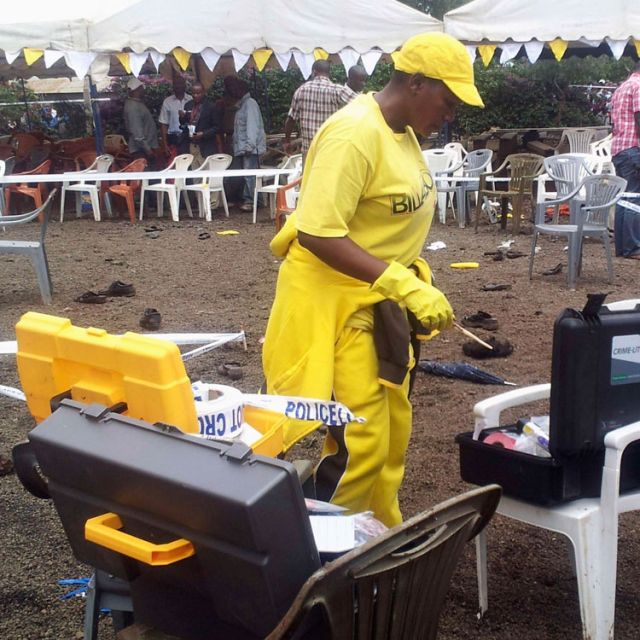"The recent campaigns can't be seen as isolated or separate," Bishop Tarcisius Ngalalekumtwa of Iringa, Tanzania, told Catholic News Service in a phone interview.
"Christian-Muslim relations have always been cordial here, which is why we're astonished by the latest violence. We conclude it must reflect interference from outside."
The bishop told CNS that Catholics were confident they could "get through the time of trouble" and were "united in prayer and conversation" with other threatened Christian denominations.
He said he believed recent violence was intended to "put into effect" a 1989 Islamist "Abuja Declaration," which called for making all Africa Muslim.
"Ordinary Muslims have nothing against the Christian religion and Catholic faith — the only ones who do are fundamentalists, pressed and influenced from outside," said Ngalalekumtwa, who has headed Tanzania's Iringa diocese since 1992.
"We're all affected by the intimidation. But we're also very united, meeting and praying together regularly to encourage each other."
A 20-year-old Tanzanian taxi driver was charged with the May 5 bombing of Arusha's St. Joseph Catholic Church, which left three people dead and dozens injured and was branded an "act of terrorism" by President Jakaya Kikwete.
The Vatican nuncio, Archbishop Francisco Padilla, who was attending the church's inaugural Mass, narrowly escaped injury in the blast, for which four Arabs were arrested but later freed.
Christians and Muslims are each estimated at around a third of Tanzania's population of 46 million, although religious affiliations are not included in government census data.
In February, Fr. Evarist Mushi, was shot dead on the predominantly Muslim island of Zanzibar during a spate of attacks on churches.
In April, police used tear gas to prevent Christian rioters from torching a mosque in southern Tanzania, while in October, 120 people were arrested after Muslim protesters attacked five churches in the main city, Dar es Salaam.
In early May, preaching at a funeral in Arusha, Ngalalekumtwa criticized "violent propaganda" by Muslim leaders and said Church leaders had faced intimidation via extremist Muslim magazines and radio broadcasts, which had been followed by "the burning of churches, attacks and assassinations."
"Their goal, according to their statements and publications, is to eradicate Christianity," said the bishop, whose Swahili sermon was excerpted by the Rome-based Fides news agency.
In his CNS interview, Ngalalekumtwa said there had been "no reactions" from the Tanzanian government and Muslim councils to recent appeals by Catholic leaders, who had decided to speak out "for the sake of peace and harmony."
He added that the country's 36-member bishops' conference would meet May 31 to decide on further steps.
"We just want the authorities to act when these groups create unrest in our country. We're counting on the government to be outspoken and take a strong stand," he said.

